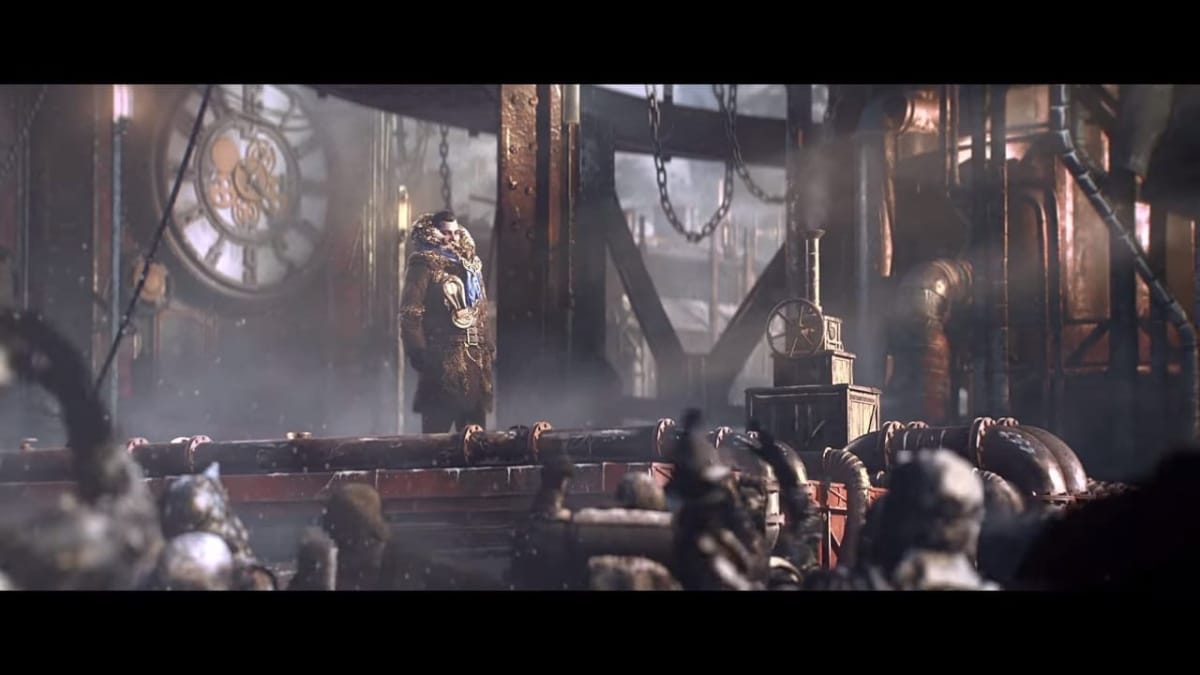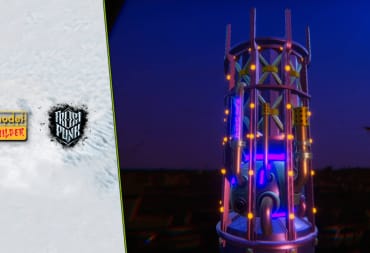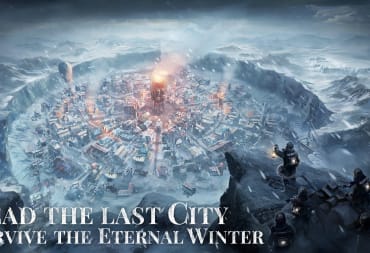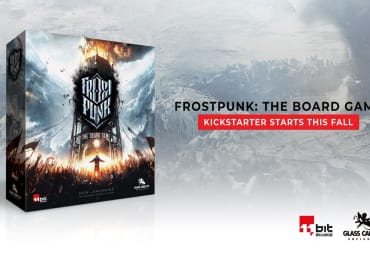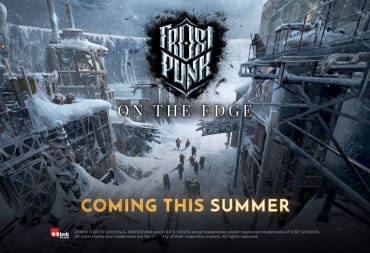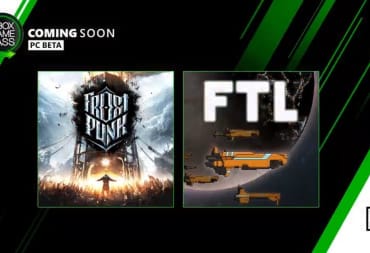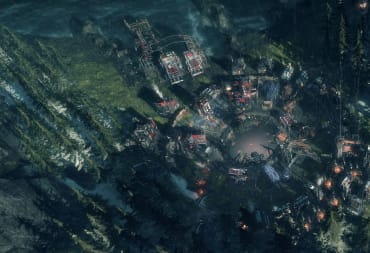Storytelling is something that appears to be intrinsic to the human race. No one is sure when we first told stories, though at this point it’s believed to be somewhere past 10 000 BC using a series of simple cave paintings. Even when living in caves the human being sought to tell stories in various methods, through art, through the Epics like Gilgamesh, through song and other methods.
That’s what always made it odd to me when people say they don’t want story in games; there is always a story, even if it is a very simple one informed only by the actions taken. The tale of two competitors striking something back and forth as they struggle against each other is not just a story of a Tennis match, but also the story of a game of Pong. Pong, one of the minimalist games has a story and depending on how the match plays, a sort of flow. Modern games like the upcoming Frostpunk can harness this type of storytelling in increasingly complex ways and weave it with other tools to tell compelling stories.
Perhaps that’s where the confusion lies. We tend to separate mechanics from storytelling, but they are tied at the hip in gaming. The experience of playing is that of uncovering the story through it all, and as two different members of 11 Bit Studios put it to me recently, “Gameplay is the language of games.”
Gameplay – how we play and interact with the game – is the unique medium of talking that video games have. Each medium has their own separate voice, and some take from others to help supplement them. Gaming can do the same, but that doesn’t mean it should, or can, forget what makes it unique and shapes its experience
Many games strictly separate their story and mechanics, meaning the language of gameplay and the language of the 'story' are not saying the same thing. An easy example here is Call of Duty, where the plot and writing has many anti-war messages, but the gameplay instead celebrates it by being a powerful action hero for whom things go right.
Instead, games can embrace the unique opportunity they have in either tabletop or video game form. One famous example that tells a story that can't really be experienced any other way is the critically acclaimed Train by Brenda Romero.
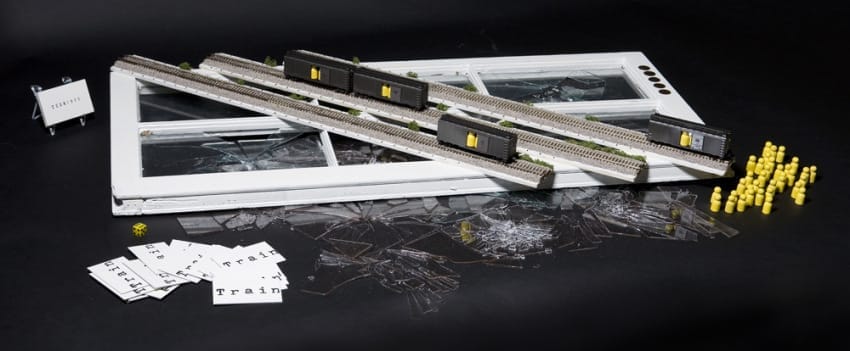
I’ll keep it short here, if you don’t know what Train is I suggest watching her GDC talk on it for more. In Train, each player is given the charge of a railway track and instructed to load people into the boxcars and progress to the end of the track, following the rules and the whims of dice and card draws. When the players arrive at their destination, they are given its name, and all of them are Nazi Concentration camps like Auschwitz.
While a board game, Train is a prime example of how morality, storytelling, and mechanics overlap. The story the players thought they were telling, perhaps of business tycoons battling for first place with events like crashes and how they treated the individual people, is changed by this, and the mechanics place a culpability on the player for just following orders. Their interpretation of the whole situation, and what they were doing, why people did what they did gets reexamined, not just because of the twist but because of how the mechanics and player interaction are tied into it.
Which brings us to today, where not too long ago I talked with some of 11 Bit Studios, the creators of This War of Mine and the upcoming Frostpunk about this very topic. The two people I talked with, including lead designer Jakub Stokalski, both cited that idea of gameplay as the language of games, and Pawel Miechowiski of 11 Bit told me how they aim to “make their mark” and want you thinking about their games after you’re done playing.
Train has two questions it asks, first “will people blindly follow the rules?”, and secondly “Will People stand by and watch?” These inform how the game is presented, how its mechanics work, and even the physical design of Train (which breaks a pane of glass each time to show a dangerous area for anyone who falls out of the eponymous train). Frostpunk, being a society simulator, has different questions at its core but they are no less important:
- What responsibilities do you have for people if you are the leader
- Do the same moral rules apply to individuals as to the entire group?
- Is it really worth surviving at all costs?
“We want the game to be a game. We want you to have a good time playing it and be an interesting experience from a gameplay point of view, and we seem to have good opinions on that. At the same time, if you want to play the game in that way and empathize a bit I want to show you the consequences, show you different situations that will make you pause and think about what you’re doing, more importantly, what you’re asking other people under your command to do.”In games like these, psychology plays a major part in many ways. Train takes advantage of players’ psychology to generally follow the rules to pose its questions. Frostpunk’s lead designer Jakub Stokalski has a background in psychology and one of the key elements they took from that and from research is the idea of creeping normality.
“Small steps lead to extremely undesirable results for groups of people” is how he defined it, and you can see it throughout the game. First, you take a step to say maybe putting sawdust in food to help it. Then, driven by cold, as some have done throughout history, you eventually resort to cannibalism, which seems more normal after you’ve already taken those first steps. While an extreme example, there are many less extreme ones throughout, and they looked back at how these situations can come not by one giant leap, but instead 20 smaller steps.
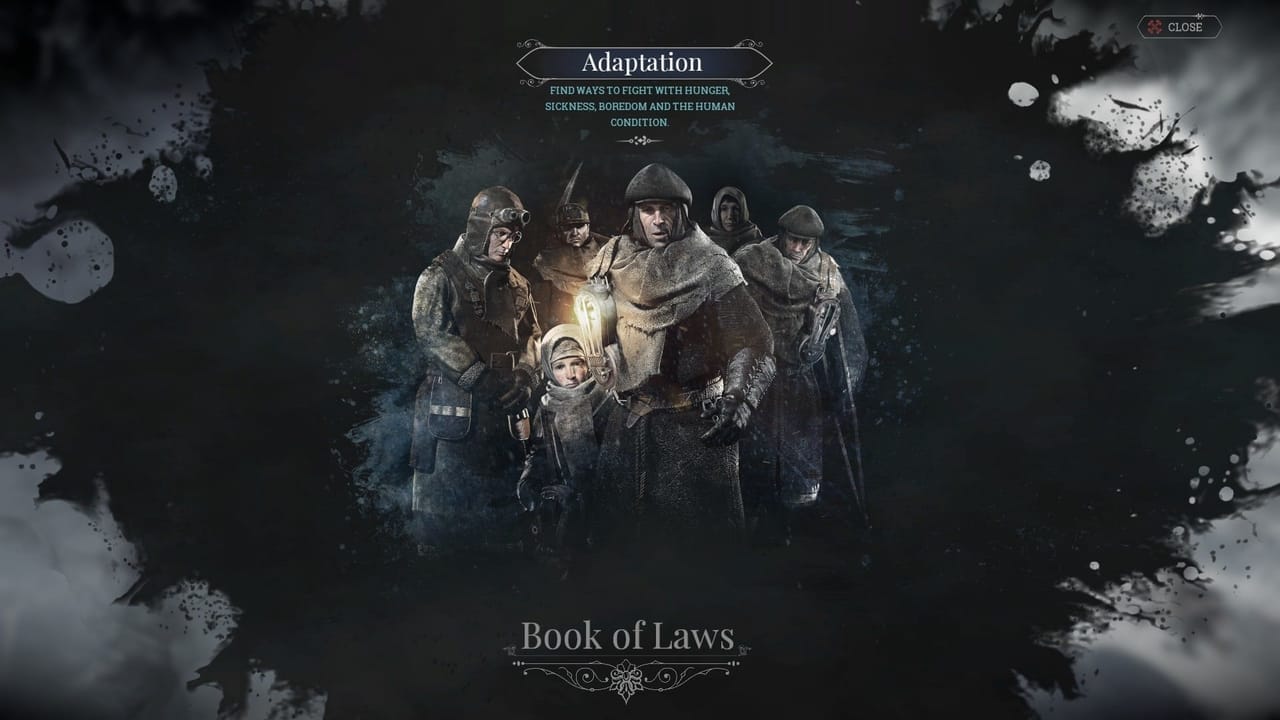
The ethos here is to show actions have consequences – whatever they may be. Sometimes, that is something positive happening because of what you did. Other times, the long-term cost of a choice comes due or something you didn’t think of at the time.
One of the earliest examples in Frostpunk of being pushed into decisions by an extreme situation is when you are asked what you will do with children. Your starting population has a group of them, and to begin with, they just sit there eating food until one of the first Call to Action activities happens and you’re asked what you want to do with them. You have three main choices: first, you can choose to do nothing and let it pass without action taken. Second, you can put them to work in ‘safe’ environments, or third, you can build child care buildings for them. The latter two have future choices like working everywhere, or doing educative type activities with the engineers.
What makes the choice difficult is that at the time you have little supplies and few people. Will you divert resources from getting enough coal, steel, and wood to build shelters for the kids to keep them out of trouble? Will you instead take a more Victorian era approach of go out there and work kids?! Each action has their own consequences, and in the short term you get feedback in messages from individuals in your society and the movement of the hope and discontent bars. Longer term, the call to action system shows the effects of actions you’ve taken and what people do from them.
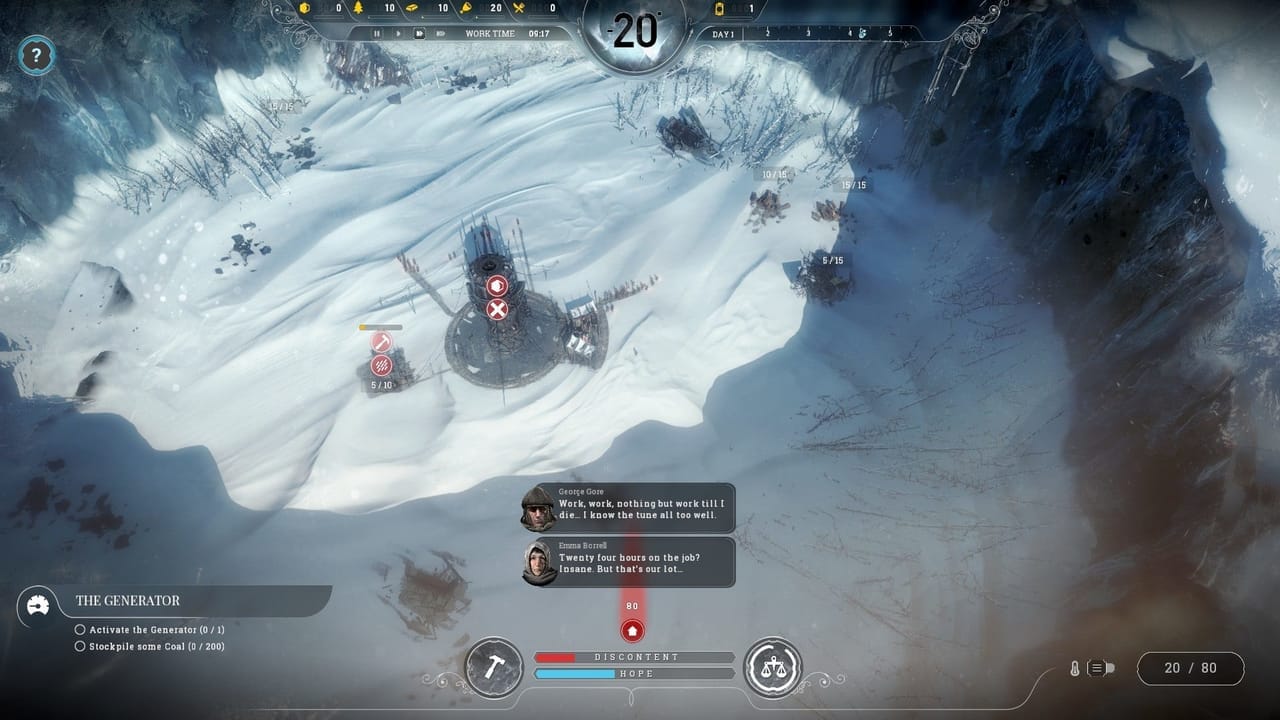
Child labor became a crystallization point for many playing the game according to Jakub. He talked through some of the process they saw people take when confronted with the overall situation in game:
“This sounds actually a bit fishy – children to work? Well let's go with that because I don’t have enough minions to do my bidding so I pass the child labor law, and then an accident happens and a child gets killed. And situations like that we had a lot of feedback that people paused at this moment. That they saw that the decisions they made just playing the game lead to these types of consequences, thinking this can end ugly if I’m not careful. There’s a lot of these type of stories.”
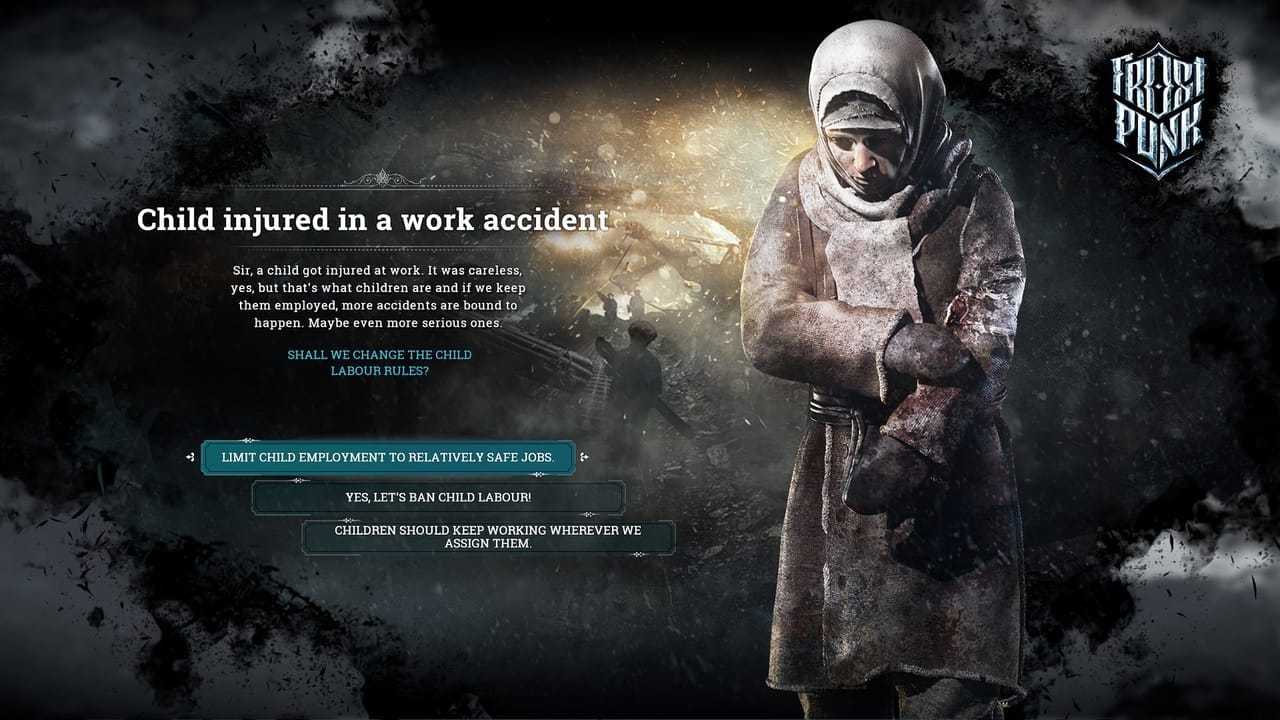
Pawel told me that he thinks Frostpunk is a game about power, which led me to thinking regarding what he meant by that. While This War of Mine got intimate, with a small group of survivors choosing what acts to take to survive, and showing us the whites in the eyes of grandparents as you robbed them if you so chose, Frostpunk scales out a step. You’re dealing with nearly a hundred people early on and it can go up from there. There are all these people following your choices and what you tell them to do – up to a certain point at least. How will you use that power? Will you push for more and more control? Will you make expedient decisions or take the harder path? If you take the harder path, is that the right thing if someone dies?
These are all things Frostpunk asks and not through just cutscenes or dialogue. The mechanics are at the core of this tale in so many ways. What do you prioritize building – something for now or the longterm? Would child labor even be a concern if there was ample food, supplies, and people?
Games have a unique ability to not just tell a story from the storyteller to another person, but to involve that person directly in it. To give them agency and let them guide the story and tell a tale that couldn’t be told in any other way.
Have a tip, or want to point out something we missed? Leave a Comment or e-mail us at tips@techraptor.net
